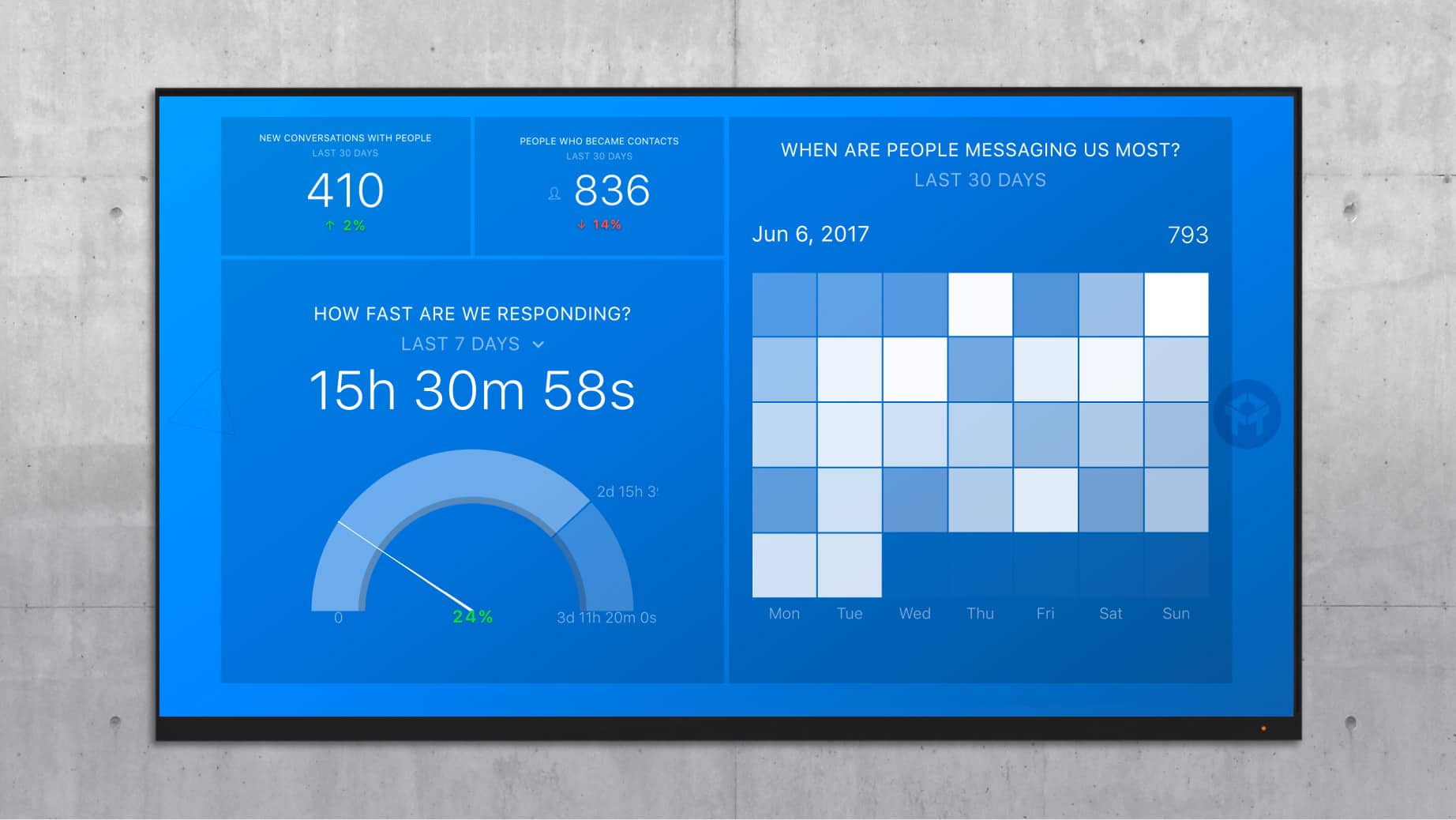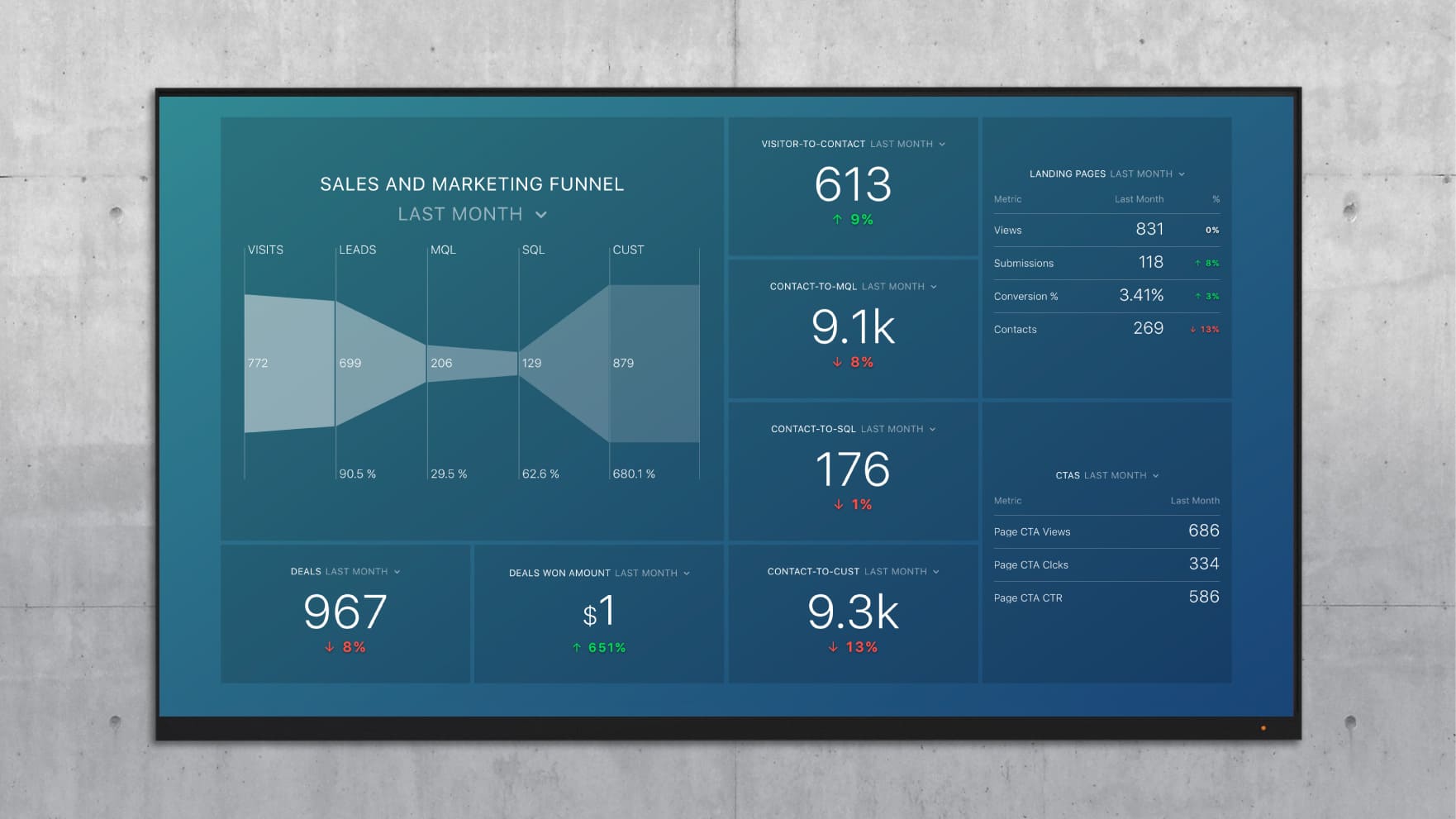Table of contents
In order to build a great marketing department, it’s not enough to just generate great ideas.
You need to measure the success of your ideas and then duplicate them. Unfortunately, most marketers are measuring the wrong KPIs, which impacts the entire company’s success, or lack thereof.
Many marketers concentrate on measuring KPIs before customer success (and you should). But, don’t forget to continue measuring important marketing metrics after customer acquisition too.
Here are a few commonly forgotten KPIs that you should measure using a marketing dashboard software in order to achieve both customer success and company growth.
Sales Team Response Time
There is a very limited window in sales. You need to ensure that your sales team answers both quickly and efficiently. Potential customers have already done their research even before contacting your business. This means when an inbound lead comes through the door, they’re interested and ready to go. Make sure a sales rep is in touch in less than 24 hours to bring the deal over the finish line. Over 50% of SaaS businesses do not reply to inbound leads within 5 business days!
Recommended Dashboard: Drift Essentials

Customer Acquisition Cost
Simply put: how many marketing dollars did you put into acquiring a new customer? Yes, this includes both paid promotion and the overhead cost of paying your marketing department. This KPI is crucial for understanding your marketing budget and planning finances down the road.
Lead to Customer Ratio
Needless to say, this KPI plays into the cost to acquire a new customer. After all of the time that your marketing (and sales) team put into closing a prospect, it’s important to understand (and measure using a marketing automation dashboard) how many of those leads then go on to become a customer. Which then leads into the next metric…
Recommended Dashboard: Pipeline Performance

Customer Value
This goes without saying- it’s incredibly important to know the value of each customer. This helps you not only gauge how many marketing and sales dollars should be spent on CAC, but also when (and how) to upsell a customer.
The formula for this is as follows:
Average Sale Per Customer times Average Purchase Per Year times Average Retention Time
This then leads into…
Customer Lifetime Value
You finally have them as a customer – this is awesome. But for how long will they remain a customer? Hopefully forever, but on the off chance that they don’t, it’s important for you to understand how long a typical customer will pay for your services.
This is a great metric to have in your back pocket to justify your marketing costs. It’s also important so that your company understands when potential deals may leave (and feel the pressure to sell more). Additionally, it’s a great metric for your product roadmap team because they can learn when a customer decides to either leave or outgrows your product/service.
These Metrics Go Far Beyond Marketing
I enjoy measuring these KPIs because they help other departments understand the data-driven nature of marketing. All departments within the company can really benefit from seeing and understanding them – services, sales, finance, marketing, product, the list goes on. Hence why using a great tool like a marketing dashboard is highly valuable.
While measuring your KPIs can help you become a better marketer, it can also help you plan where your company is heading. It can provide you with a better understanding of your services/product, finances, competitive landscape, and your buyer personas.
What metrics are you measuring post-sale and how you are measuring them? Let us know in the comments below.














